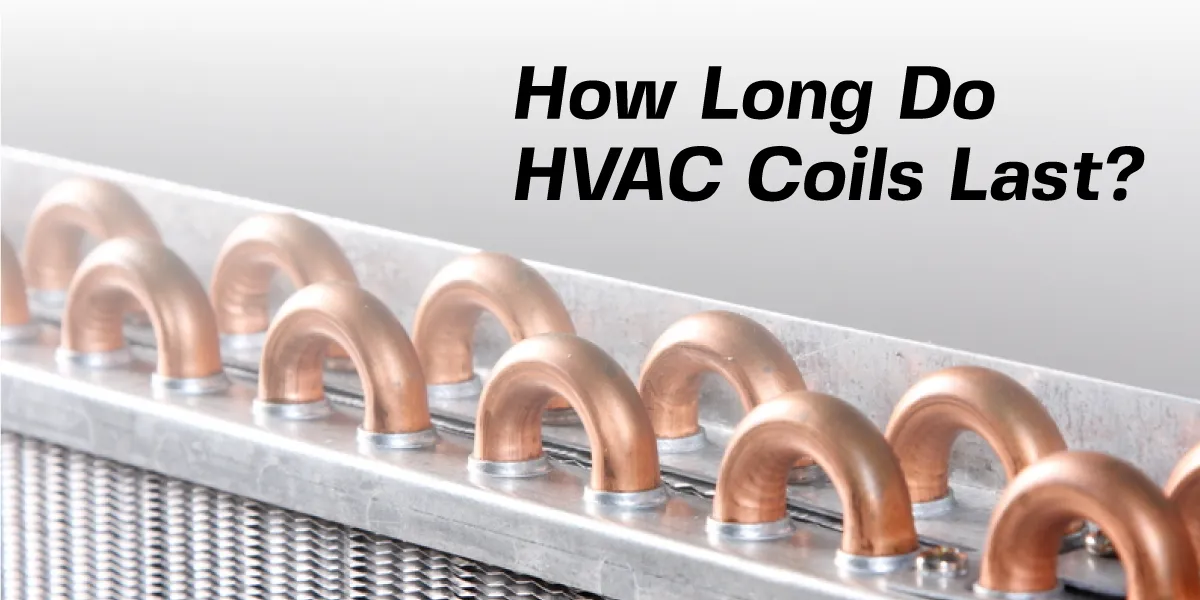HVAC coils are crucial components of your heating, ventilation, and air conditioning system, playing a vital role in maintaining comfortable indoor temperatures and air quality. However, like any mechanical part, they have a limited lifespan and require regular maintenance to ensure optimal performance. Understanding how long HVAC coils last and the factors that influence their longevity can help you plan for replacements and maintain your system’s efficiency. This guide provides a comprehensive overview of the average lifespan of HVAC coils, signs that indicate they need replacement, and tips on how to extend their lifespan.
The lifespan of HVAC coils, including evaporator and condenser coils, can vary depending on several factors such as maintenance practices, operating conditions, and environmental factors. Here are some general guidelines:
- Average Lifespan: The average lifespan of HVAC coils is between 10 to 15 years.
- Extended Lifespan: With proper care and maintenance, high-quality coils can last up to 20 years.
- Factors Affecting Lifespan: The longevity of HVAC coils is influenced by factors such as climate, maintenance practices, and the quality of the coils.
- Maintenance Importance: Regular maintenance, including cleaning filters and ensuring adequate airflow, is crucial to extend the lifespan of HVAC coils.
What are the signs that my HVAC coils need replacement?
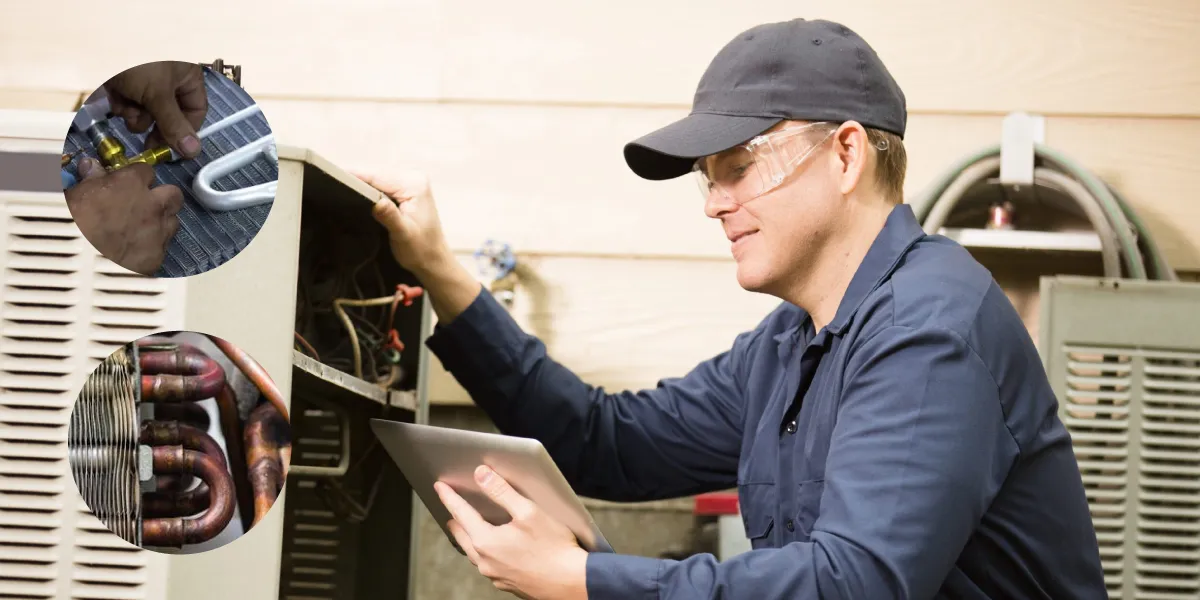
The signs that your HVAC coils need replacement include:
Reduced Cooling Effectiveness: If your air conditioner is running but the air being emitted isn’t as cool as you’re accustomed to, it may indicate a problem with the evaporator coils.
Leaks Around Your Unit: Leaks can be caused by your coil continuously freezing and thawing, leading to rust and additional damage.
Hot Air Coming Out: If you notice warm air coming out of your supply vents, it could be a sign of a damaged evaporator coil.
Unusual Noises: Banging, hissing, or clanging noises from your AC unit often indicate a damaged evaporator coil.
Increased Energy Bills: Substantially higher monthly energy bills can be a sign that your coils are not working efficiently.
Visible Signs of Rust or Corrosion: If you notice rust or corrosion on the coil or its lines, it may be time to replace the coil.
Frozen Evaporator Coil: An accumulation of ice on your evaporator coils indicates a problem with the coil’s ability to absorb heat efficiently.
Short Cycling: If your air conditioner frequently turns on and off, it could be a sign of evaporator coil issues.
Extremely Dirty Coils: Coils that are covered in dust and grime can lead to corrosion and may need to be replaced.
Refrigerant Leaks: Signs of refrigerant leaks, such as frost build-up on the coils or unusual hissing noises, indicate that the coil needs to be replaced.
How can I extend the lifespan of my HVAC coils?
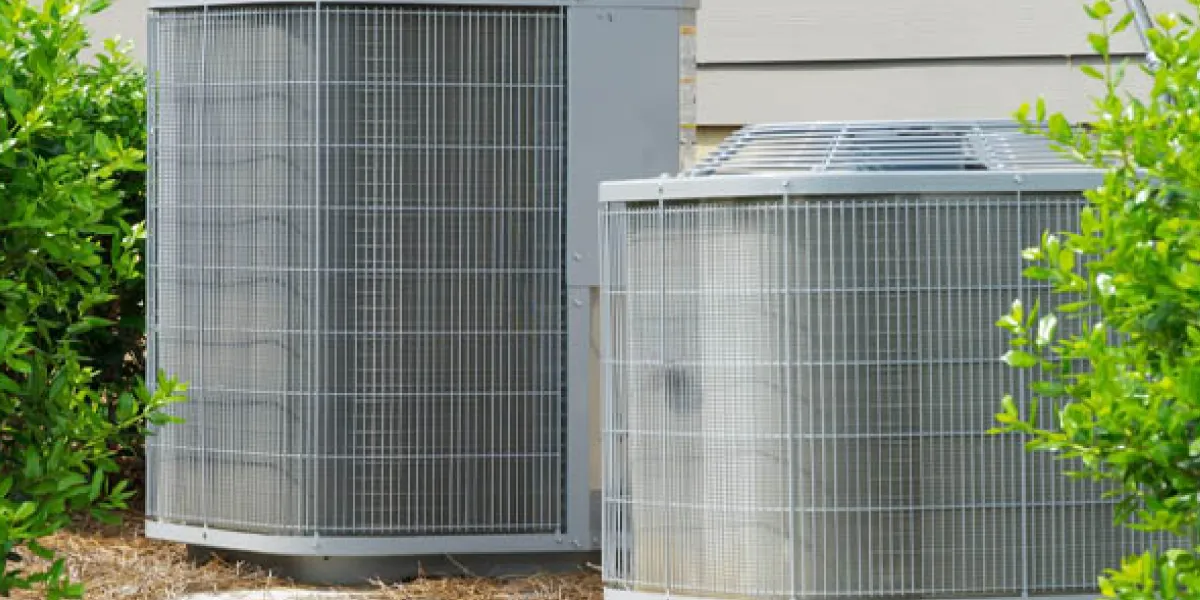
To extend the lifespan of your HVAC coils, follow these key maintenance tips:
Clean both the evaporator and condenser coils at least once a year. For the condenser coils, use a garden hose to spray the inside of the unit, ensuring it dries before restoring the panels.
Hire a Steam Express professional HVAC technician to inspect and clean the coils annually, especially for the evaporator coils which are more difficult to access and require specialized cleaners.
Change your air filter every 1-2 months to prevent dirt and pollen from accumulating on the coils and affecting their efficiency.
Keep the area around the outdoor unit clear, with at least 2 feet of clearance from plants and debris to ensure adequate airflow.
Regularly inspect for refrigerant leaks, which can erode the coils and cause cracks or holes over time.
Apply a protective coating to the coils to prevent corrosion, especially in areas prone to chemical vapors and pollutants.
Ensure that the ducts are properly sealed and insulated to prevent leaks and additional strain on the system.
Set your thermostat at an energy-efficient temperature and avoid drastic temperature fluctuations to reduce strain on the system.
Are there specific maintenance tips for different types of HVAC coils?
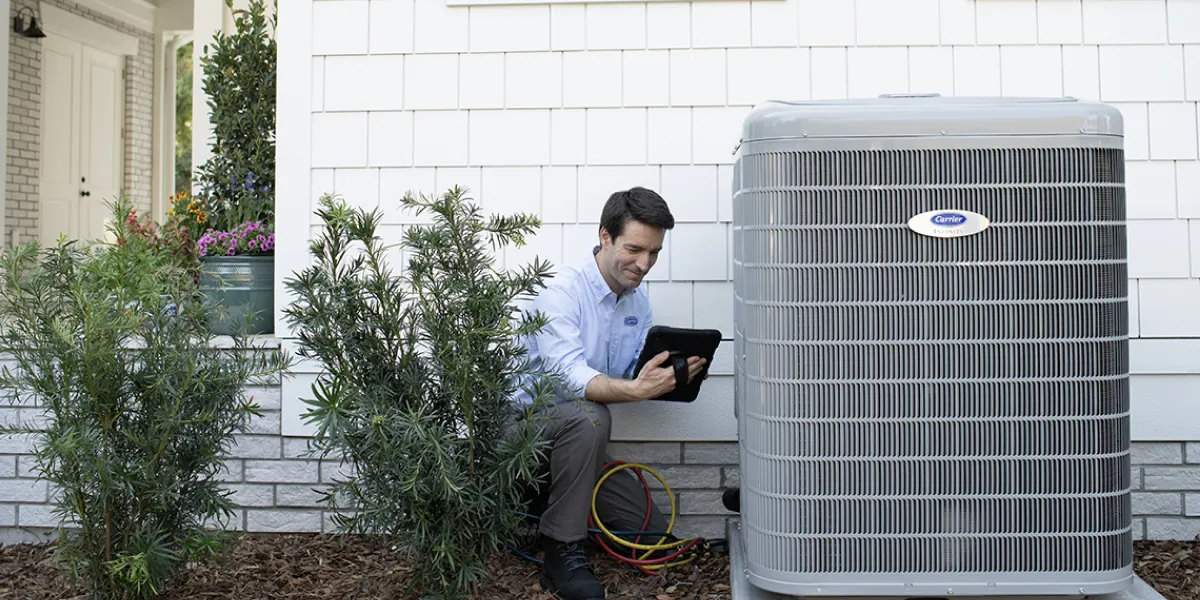
Yes, there are specific maintenance tips for different types of HVAC coils, including evaporator and condenser coils. Here are some key points:
Evaporator Coils:
Gentle Cleaning: Use a soft-bristled brush to gently remove loose debris from the evaporator coils, taking care not to damage the delicate fins.
Specialized Cleaners: Use a commercial coil cleaner or a DIY solution of warm water and mild detergent to clean the evaporator coils. Avoid harsh chemicals that can damage the coils.
Regular Inspection: Inspect the evaporator coils visually for signs of dirt, debris, or mold growth. Clean the coils if you notice any of these signs.
Air Filter Maintenance: Change the air filter regularly (every 1-3 months) to prevent dust and debris from accumulating on the evaporator coils.
Condenser Coils:
Back Flushing: Use a medium-pressure water flow (up to 400 PSI) to back flush the condenser coils, ensuring all debris is removed.
Specialty Cleaning Systems: Use specialty cleaning systems designed for condenser coils to minimize water pressure and maximize water volume for efficient cleaning.
Garden Hose: Use a garden hose to spray the condenser coils, starting from the top and working down, to remove dirt and debris.
Avoid High-Pressure Water: Avoid using high-pressure water, which can bend or damage the fins of the condenser coils.
General Tips:
Annual Maintenance: Clean both evaporator and condenser coils at least once a year to ensure optimal performance and longevity.
Professional Maintenance: Consider hiring a professional HVAC technician to inspect and clean the coils annually, especially if you are unsure about how to clean them safely.
Airflow: Ensure that nothing blocks the airflow of the evaporator and condenser coil units, keeping plants and debris at least 2 feet away from the condenser unit.
Refrigerant Leaks: Regularly inspect for refrigerant leaks, which can erode the coils and cause cracks or holes over time
How does climate affect the longevity of HVAC coils?
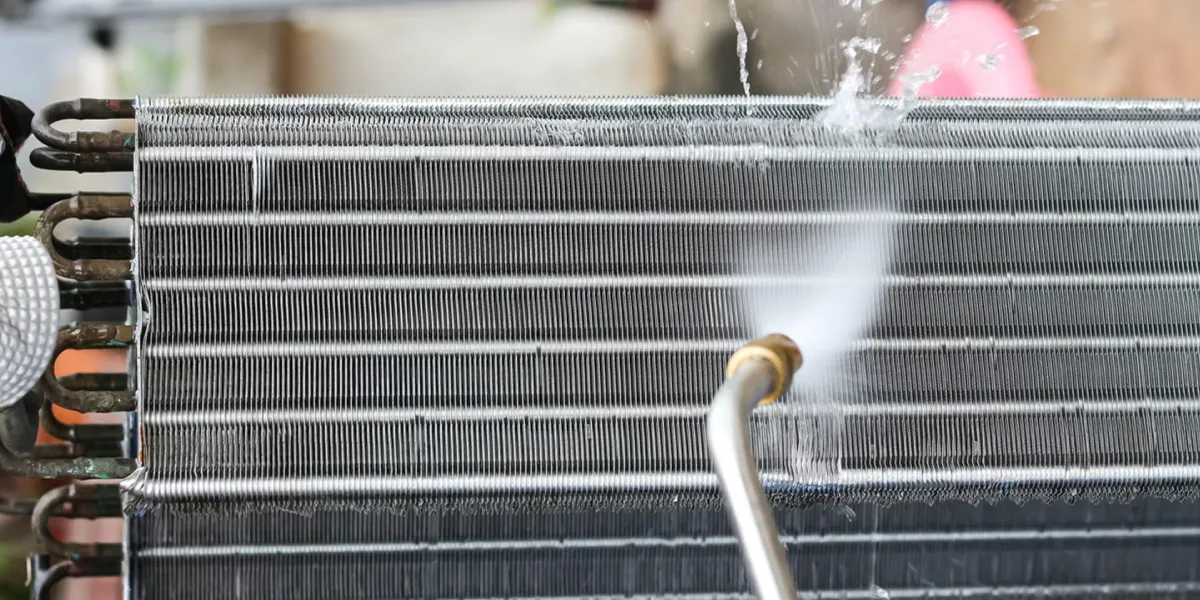
Climate plays a significant role in affecting the longevity of HVAC coils. Here are some key points on how climate impacts the lifespan of these coils:
Extreme Temperatures: Extreme temperatures, whether hot or cold, can cause the HVAC system to work harder, leading to increased wear and tear on the coils. This can shorten their lifespan.
Precipitation and Humidity: High levels of precipitation and humidity can cause corrosion and damage to the coils, particularly the condenser coils which are exposed to the elements. This can lead to a shorter lifespan.
Wind and Debris: Windy weather can cause debris to accumulate on the condenser coils, obstructing airflow and leading to overheating. This can reduce the lifespan of the coils.
Dry Weather: Dry weather can cause dust and debris to accumulate more quickly on the coils, particularly the evaporator coils, which can lead to a decline in performance and potentially earlier failure if not regularly maintained.
Regional Climate Variations: The specific climate conditions of a region can impact the lifespan of HVAC coils differently. For example, areas with high temperatures and humidity may require more frequent maintenance to prevent premature failure.
Key Takeaways:
- Regular Maintenance: Regular cleaning and inspection of the coils are crucial to prevent issues such as corrosion or dirt buildup that can shorten their lifespan.
- Environmental Factors: Exposure to corrosive environments, extreme temperatures, or excessive strain on the system can contribute to coil deterioration.
- Climate-Specific Care: Tailoring maintenance practices to the specific climate conditions of your region can help maximize the lifespan of HVAC coils.


